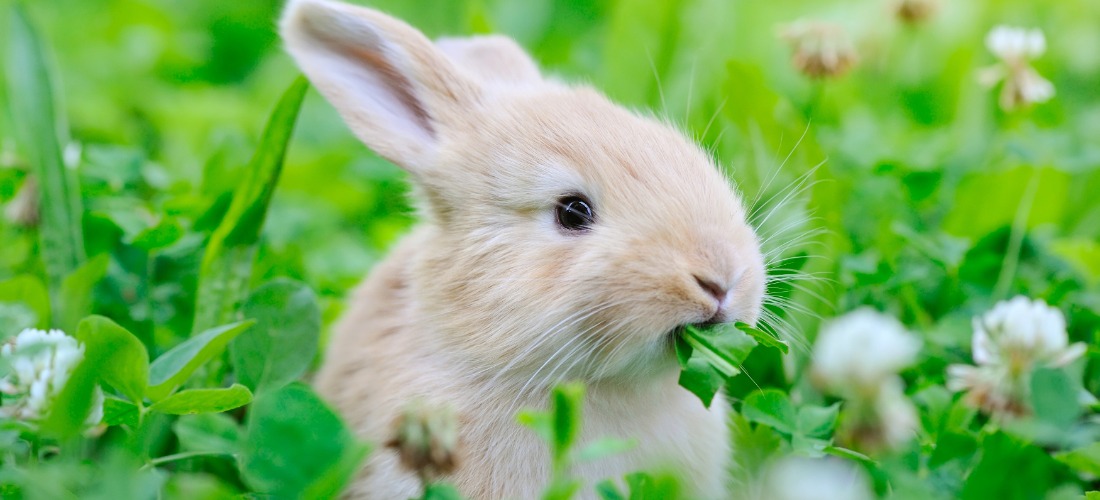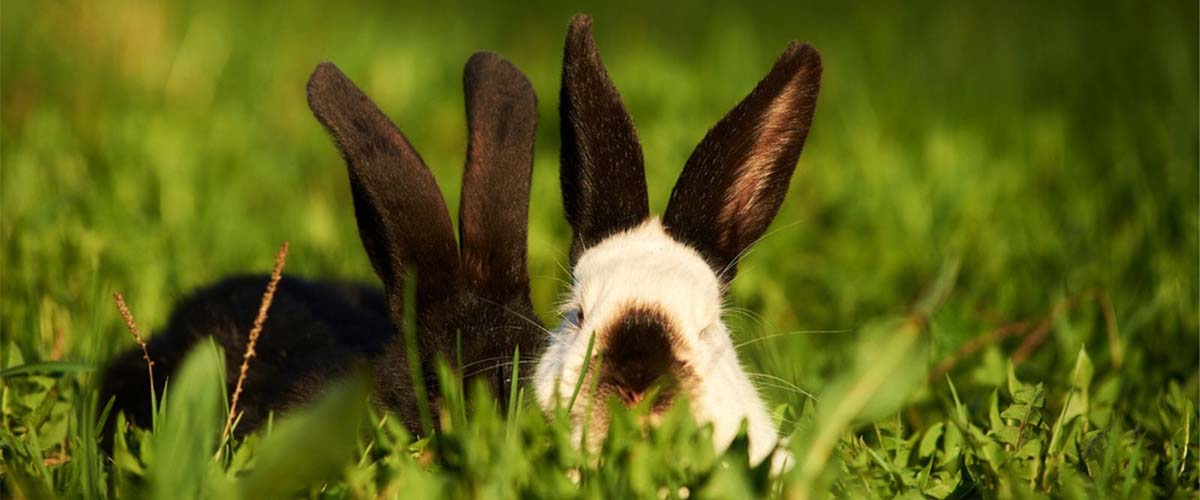Reduced Appetite in a Rabbit
Overview
- If your rabbit stops eating, this is a serious concern.
- Unlike many other species, who can cope with occasionally missing a meal, rabbits need to eat regularly to keep their guts moving.
- If your rabbit has stopped eating completely, they are at risk of serious complications such as gut stasis, a gut blockage, dehydration and liver disease.
- It’s extremely important to contact your vet straight away if you notice your rabbit is eating less than normal.
- There are many different problems that could have caused your rabbit to stop eating, but some of the most common include dental disease, stress, and gut problems.

Many different things could have caused your rabbit to lose their appetite. It would be impossible to list every possible cause, but the some of the most common include:
Dental problems - dental problems are painful and often cause a reduced appetite.
Stress - stress is a common cause of reduced appetite in rabbits and is often triggered by what seem like minor events to us, such as a change in housing, loud music, or a new pet joining the household.
Gut stasis/ileus - gut stasis (also called ileus), is when the guts slow down, or stop moving completely. Gut stasis can both cause, and be caused by a reduced appetite - meaning it can become a bit of a vicious cycle. Gut stasis is an emergency that can be fatal if it isn’t treated quickly.
Diet changes - changing your rabbits’ food suddenly is likely to cause them a level of stress, and could even stop them eating. It can also lead to stomach upsets or diarrhoea. If you need to change your rabbits’ diet, always transition them gradually over a couple of weeks.
Stomach ulcers - stomach ulcers are a common problem in rabbits, often brought on by stress. They are very painful and often cause a reduced appetite.
Urine infections - urine infections are painful and often cause your rabbit to eat less.
Respiratory infections - a respiratory infection can cause a rabbit to feel unwell and stop eating.
How will I know if my rabbit isn’t eating?
Apart from their food bowl staying full, some of the more subtle signs you’re your rabbit isn’t eating properly may include:
- Weight loss
- Small or less droppings
- Diarrhoea/soft faeces
- Lethargy and hiding away
- Drooling and a wet chin
- Tooth grinding (sign of pain)
- A wet or dirty bottom
Treatment
To begin with (despite the cause), it’s important to quickly get your rabbit eating again. This will prevent them developing any complications such as dehydration, gut stasis or liver disease. To do this, your vet may prescribe medication for treatment at home, or admit them into the veterinary hospital for intensive treatment and nursing care. Treatment is likely to include , medications to keep the guts moving, and pain relief.
Once your vet knows why your rabbit has stopped eating, they will be able to create a long-term treatment plan.
When to contact your vet
Contact your vet immediately if you notice your rabbit not eating properly. It’s important to have them examined as soon as possible to prevent them developing any further complications.
Emergency - if your rabbit has stopped eating, it’s important to contact your vet as soon as possible.
Published: April 2021
Did you find this page useful?
Tell us more
Please note, our vets and nurses are unable to respond to questions via this form. If you are concerned about your pet’s health, please contact your vet directly.
Thank you for your feedback
Want to hear more about PDSA and get pet care tips from our vet experts?
Sign up to our e-newsletter
Written by vets and vet nurses. This advice is for UK pets only. Illustrations by Samantha Elmhurst.

